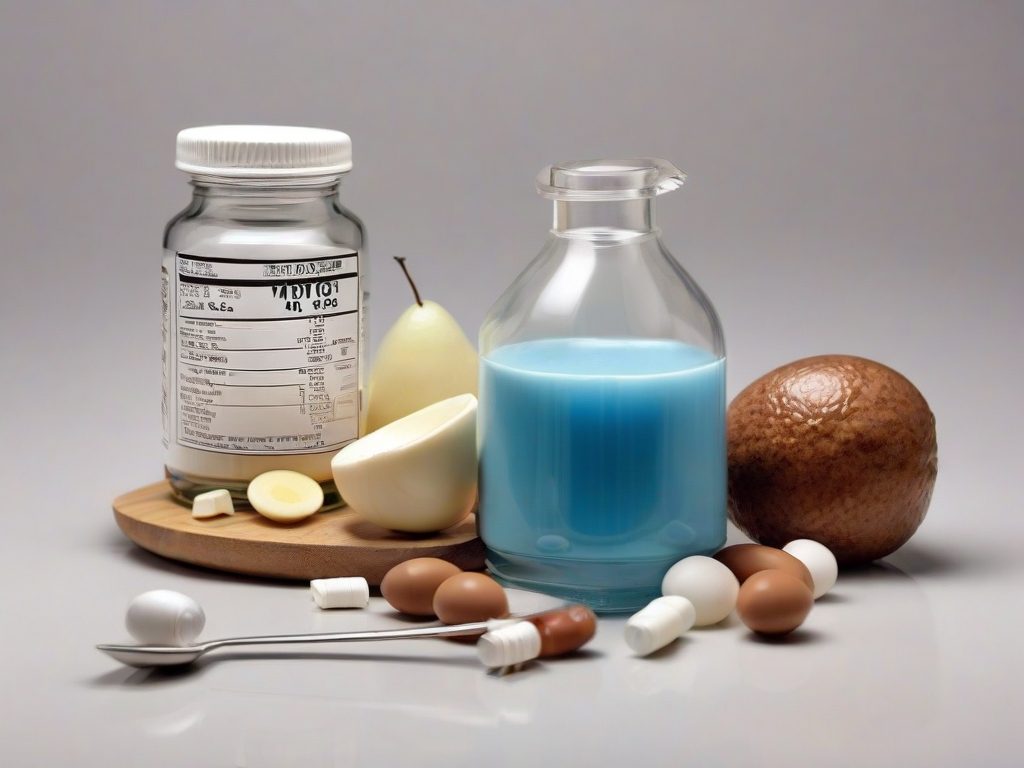The Keto Diet and Ketoacidosis (aka DKA). The Keto Diet is a popular low-carb, high-fat diet that has recently gained much attention.
It’s important to note that the Keto Diet is not the same as ketoacidosis, a serious medical condition that can occur in individuals with uncontrolled diabetes. While the Keto Diet may induce a state of ketosis, which is different from ketoacidosis, it is still advised to consult with a healthcare professional before starting any new diet or making significant dietary changes.
The ketogenic or keto diet, for short, has gained significant popularity in recent years. It is a low-carbohydrate, high-fat diet that has been praised for its ability to promote weight loss and improve overall health. The main principle behind the keto diet is to shift the body’s primary source of fuel from carbohydrates to fats, leading to a state of ketosis. In this state, the body burns fat for energy instead of glucose, resulting in weight loss. The relationship between fat and weight loss in a ketogenic context is crucial, as the high-fat content of the diet promotes satiety and reduces hunger, contributing to calorie restriction and weight loss.
Ketosis is a metabolic state in which the body produces ketones as an alternative fuel source when glucose (from carbohydrates) is limited. When you consume a low amount of carbohydrates, your body begins to break down stored fat into ketones, which are then used as energy. This process can have numerous benefits for weight loss, energy levels, and mental clarity.
The Low Carb Diet: How It Works and Its Benefits
The low-carb diet is similar to the keto diet in that it restricts carbohydrate intake. However, it is not as strict as the keto diet and allows for a slightly higher carbohydrate intake. The main goal of a low-carb diet is to reduce the consumption of foods that are high in refined carbohydrates, such as bread, pasta, and sugary snacks.
By reducing carbohydrate intake, the body is forced to use stored fat as its primary source of fuel. This can lead to weight loss as the body burns through its fat stores. Additionally, a low-carb diet has been shown to improve blood sugar control and insulin sensitivity, making it beneficial for individuals with diabetes or insulin resistance.

Ketosis: What It Is and How It Affects the Body
Ketosis is a natural metabolic state that occurs when the body does not have enough glucose for energy and starts breaking down fat for fuel. When this happens, ketones are produced as a byproduct of fat metabolism. The brain and other organs can use these ketones as an alternative source of energy.
One of the main benefits of ketosis is its ability to promote weight loss. When the body is in a state of ketosis, it becomes more efficient at burning fat for fuel, reducing body fat stores. Additionally, ketosis has been shown to improve mental clarity and focus, as the brain is able to use ketones as an energy source.
What Is Ketoacidosis and How Is It Different from Ketosis?
DKA is a serious medical condition that occurs when there is an excessive buildup of ketones in the blood. Unlike ketosis, which is a natural metabolic state, DKA is a potentially life-threatening condition that requires immediate medical attention, the same as alcoholic ketoacidosis.
DKA typically occurs in individuals with uncontrolled diabetes, as their bodies are unable to regulate blood sugar levels properly. When blood sugar levels are consistently high, the body starts breaking down fat for fuel, producing excessive ketones. This can result in a dangerous imbalance of acids in the blood, leading to organ damage and even death if left untreated.
Can the Keto Diet Cause Ketoacidosis?
While the keto diet can lead to a state of ketosis, it is important to note that it is highly unlikely to cause DKA in individuals without pre-existing medical conditions. Ketoacidosis is primarily associated with uncontrolled diabetes and should not be a concern for most individuals following the keto diet.
However, it is important to monitor your blood sugar levels and consult with a healthcare professional if you have diabetes or any other medical condition that may increase your risk of developing symptoms of diabetic ketoacidosis. Additionally, excessive alcohol consumption can increase the risk of ketoacidosis in individuals on the keto diet.

What can cause ketoacidosis?
While the keto diet can result in ketosis, it is unlikely to cause ketoacidosis in individuals without pre-existing medical conditions. DKA is mainly associated with uncontrolled diabetes and is not a concern for most people on the keto diet. However, it is important to monitor your blood sugar levels and consult a healthcare professional if you have diabetes or any medical condition that may increase your risk of developing diabetic ketoacidosis symptoms. Excessive alcohol consumption can also elevate the risk of DKA in individuals following the keto diet.
How do you fix ketoacidosis?
To fix ketoacidosis, immediate medical attention is necessary.
To fix ketoacidosis, it’s crucial to seek immediate medical attention. Your healthcare provider will likely recommend intravenous fluids to rehydrate your body and restore electrolyte balance. They may also administer insulin to lower blood sugar levels and normalize ketone production.
It’s important to closely monitor your blood glucose and ketone levels throughout treatment. Implementing a balanced diet and adhering to your prescribed medication regimen can help prevent ketoacidosis from recurring.
Remember, early detection and prompt treatment are key to managing ketoacidosis effectively.
Insulin therapy is the main treatment for ketoacidosis, as it helps lower blood sugar levels and halt the production of ketones. Monitoring your blood glucose and ketone levels is crucial during treatment to ensure they are within a safe range. A balanced diet and proper medication adherence can also help prevent ketoacidosis from recurring.
Acidosis: Understanding the Basics
Acidosis is a condition characterized by an imbalance of acids in the body. It occurs when there is an excess of acid or a decrease in the body’s ability to remove acid. There are two main types of acidosis: respiratory acidosis and metabolic acidosis.
Respiratory acidosis occurs when carbon dioxide accumulates in the blood, leading to an increase in acidity. It can be caused by conditions such as lung disease or impaired breathing, which would require a completely different treatment than treatment for diabetic ketoacidosis.
Metabolic acidosis, on the other hand, occurs when the body has an excess of acid or a decrease in its ability to remove acid. It can be caused by conditions such as kidney disease, diabetes, or certain medications.
How Does the Keto Diet Affect Acidosis?
The keto diet can potentially affect acidosis, particularly metabolic acidosis. When the body is in a state of ketosis, it produces ketones as a byproduct of fat metabolism. These ketones can increase the acidity of the blood, leading to a condition known as ketoacidosis.
However, it is important to note that DKA is extremely rare in individuals without pre-existing medical conditions, even for those who are in starvation ketoacidosis. The body has natural mechanisms in place to regulate blood pH levels and prevent excessive acidity. As long as you follow a well-balanced keto diet and monitor your health, the risk of developing acidosis on the keto diet is minimal.
High Ketones in Urine: What Does It Mean?
High ketones in urine, also known as ketonuria, indicate that the body is producing an excess amount of ketones. This can occur when the body is in a state of ketosis or during episodes of DKA.
While it is normal to have some ketones in urine when following a ketogenic diet, excessively high levels may indicate a potential problem. If you are experiencing symptoms such as excessive thirst, frequent urination, or abdominal pain along with high ketones in urine, it is important to seek medical attention as this may be a sign of ketoacidosis.
Metabolic Acidosis: What You Need to Know
Metabolic acidosis is a condition characterized by an excess of acid in the body or a decrease in the body’s ability to remove the acid. It can be caused by a variety of factors, including diet disease, diabetes, and certain medications.
When the body is in a state of ketosis, it produces ketones as a byproduct of fat metabolism. These ketones can increase the acidity of the blood, leading to metabolic acidosis. However, it is important to note that metabolic acidosis is rare in individuals without pre-existing medical conditions.
Is the Keto Diet Safe for You?
The keto diet can be a safe and effective way to promote weight loss and improve overall health for most individuals. However, consulting with a healthcare professional before starting any new diet or exercise program is important, especially if you have pre-existing medical conditions.
While the keto diet has numerous benefits, it is not suitable for everyone. Individuals with diabetes or other medical conditions that may increase the risk of developing ketoacidosis should exercise caution when following the keto diet. Additionally, excessive alcohol consumption can increase the risk of ketoacidosis and should be avoided.
In conclusion
The keto diet can be a safe and effective way to achieve your health and weight loss goals. By understanding the principles of ketosis and monitoring your health closely, you can safely follow the keto diet and reap its many benefits. Remember to listen to your body, watch for symptoms of ketoacidosis, and consult a healthcare professional with any concerns or questions.
Read more here at the National Library of Medicine.
Options
If you’re interested in exploring other healthy eating options, you might want to check out this informative article on the Mediterranean diet. The Mediterranean diet has gained popularity for its numerous health benefits, including reducing the risk of heart disease and promoting weight loss. To learn more about this nutritious and delicious way of eating, click here: Information About the Mediterranean Diet.

Leave a Reply